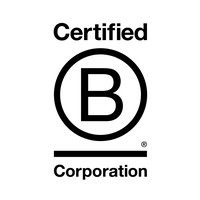B Corps Commit to Net Zero Carbon Emissions by 2030; Regulators Show Concern Over Amazon-Deliveroo Deal
by Hugh Williams on 12th Dec 2019 in News


DTC’s Daily Digest brings you the latest news on the world’s fastest growing direct-to-consumer brands. In today’s edition: B Corps commit to Net Zero carbon emissions by 2030; Regulators show concern over Amazon-Deliveroo deal; and Chewy stocks surge.
B Corps commit to Net Zero carbon emissions by 2030
Over 500 B Corps around the world have committed to being Net Zero by 2030. In total, 533 companies have made the pledge, as the UN Climate Change Conference takes place in Madrid.
To do this, they will have to accelerate the reduction of their greenhouse gas emissions to reach net zero emissions by 2030. This timeline is 20 years ahead of the 2050 targets set in the Paris Agreement.
This commitment to significant carbon reduction leading to a net zero future by 2030 is part of the most aggressive climate action effort by a constituency of businesses in the world and demonstrates true leadership in a time of severe environmental and economic unrest and uncertainty.
There are 61 B Corps in the UK who have made the commitment. British DTC businesses include brands like allplants, Mindful Chef, The Cheeky Panda, and Bulb. Other well known brands making this commitment include innocent, Patagonia, The Body Shop, Ella’s Kitchen, Allbirds and The Guardian.
Regulators show concern over Amazon-Deliveroo deal
Britain’s competition regulator said Amazon’s purchase of a stake in online food delivery group Deliveroo raised “serious competition concerns” for consumers that may require an in-depth investigation.

After completing a “Phase 1” probe, the Competition and Markets Authority (CMA) said it would proceed to an in-depth investigation if Amazon and Deliveroo failed to offer legally binding proposals that addressed its concerns.
The CMA’s initial probe found that the investment, in its current form, could harm competition in two ways.
Firstly, the regulator is concerned that the deal could damage competition in online restaurant food delivery by discouraging Amazon re-entering a market it exited last year.
Secondly, the CMA said the deal could damage competition in the emerging market for online convenience grocery delivery, where Amazon and Deliveroo have already established market-leading positions.
The CMA has given the two companies five working days to present their proposals. The regulator would then have five working days to consider whether to accept their offer instead of referring the case to an in-depth probe.
Chewy stocks surge
Shares of Chewy, the online pet retailer, gained more than 5% on Wednesday, as the company brushed off lockup expiration worries. 
Trading volume on the stock surpassed 7.7 million before the end of the session, more than triple its 30-day average.
The lockup refers to a period of time when employees of a newly public company are restricted from selling their stock. The ending of that period can cause a headache for businesses if a large number of employees unload their assets, causing a sell-off in the stock, as has been the case for other companies in 2019.
In November, Uber’s shares plunged to an all-time low in intraday trading leading up to its lockup expiration. The plant-based food company Beyond Meat watched its stock plummet more than 20% as trading opened up for insiders.
Chewy reported mixed third-quarter results on Monday, causing shares to slide, but they have since recovered.
Want this in your Inbox? Sign up to our newsletter here!






Follow Fast Growth Brands